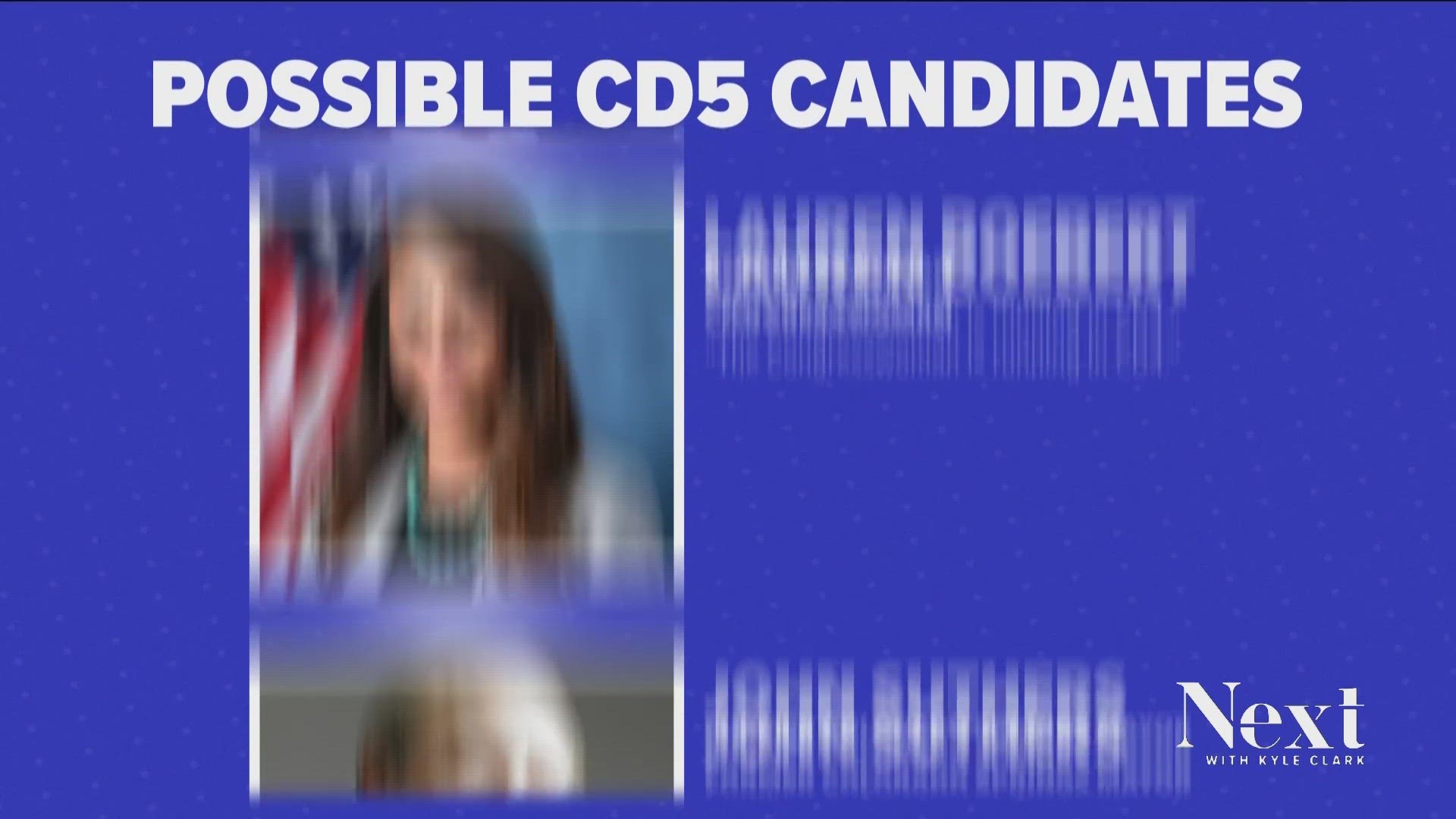COLORADO, USA — With wide-open Republican primaries in Colorado's three Republican-held congressional districts, the next representatives may be picked by primary voters and confirmed in a less-than-competitive general election.
It remains to be seen if the 3rd Congressional District, which includes the Western Slope and southern Colorado, can still be competitive for Democrats without Rep. Lauren Boebert on the ballot.
Boebert is now running in the 4th Congressional District, which covers Douglas County and the Eastern Plains. Rep. Ken Buck announced in November that he would retire.
Boebert is one of seven announced Republican candidates in that district. If they all make the primary ballot, it will not require 50% or more of the vote to win the election. It could require just 20% or 30%.
That means whoever primary voters pick to be the next Republican nominee may be opposed by three-quarters of the voters.
The same could be said for the 5th Congressional District, where Rep. Doug Lamborn just announced his retirement last week.
“This is a good example of what I have foreseen as a problem,” election administration expert Amber McReynolds said.
McReynolds is a former Denver Elections Division director and a proponent of ranked choice voting.
“In a primary, when you got a large field, people can advance to a general election with 20, 30% of the vote, or less than 50, which means that more than half of the voters that participated didn’t want that candidate,” McReynolds said. “In essence, we are allowing 20% of a political party’s primary to determine who the representative is.”
In CD4 and CD5, the winner of the Republican primary will most likely be the next representative, as those districts are heavily Republican. In those districts, the general election in November has been a formality, with the winner picked in the June primary.
“That primary is, in essence, choosing who will be the representative,” McReynolds said.
That is where ranked choice voting comes in.
“It ensures that a candidate would get over 50% support,” McReynolds said.
Ranked choice voting is when voters rank their candidates in order of their preference. If no one finishes at 50% after the first ballot, the last-place candidate is eliminated and voters that picked that last-place candidate as their first choice, get their second choice tallied. This goes on until someone gets 50% plus one.
Under the current system, it's whoever finishes first, regardless of what percentage first place equals.
“I looked, actually, at the 2014 GOP primary for governor. Bob Beauprez advanced to the general election with 30% of the vote,” McReynolds said.
In the 2014 Republican primary for governor, the results were:
- Beauprez: 30%
- Tom Tancredo: 27%
- Scott Gessler: 23%
- Mike Kopp: 20%
McReynolds said it is possible that whoever wins a winner-take-all, could also come out on top in ranked choice voting.
“Alaska, in 2022, both for Congress and for Senate, both of the two people that were leading, that led all votes, they would have won either way,” McReynolds said.
“If you’re going to go to a different system, a better system would be to use a runoff. That’s what’s done in places like Georgia and Louisiana,” Wayne Williams said.
Williams is the former Republican Colorado Secretary of State and former Colorado Springs city councilman who just lost a runoff for Colorado Springs mayor. He is considering a run for CD5.
He does not support ranked choice voting for this type of race.
“Right now, it’s in the experimental stage, where you have some municipalities trying it. That’s where it belongs at this stage, as opposed to moving to, actually, choosing the next person who will represent a district in Congress,” Williams said. “It can wind up being a ‘name ID’ contest or a popularity contest as opposed to, actually, deciding based on the issues that are involved.”
“A runoff is far more expensive. Denver has a runoff for mayor,” McReynolds said. “It’s a couple million dollars every time they do a runoff.”
She said it is not just expensive for cities, but also the candidates running for office, who have to fund a quick turnaround for a runoff.
SUGGESTED VIDEOS: Full Episodes of Next with Kyle Clark

